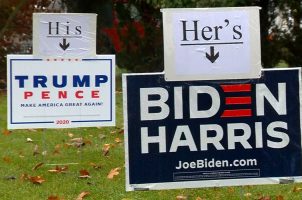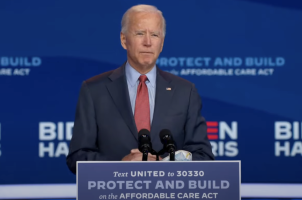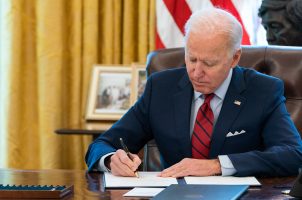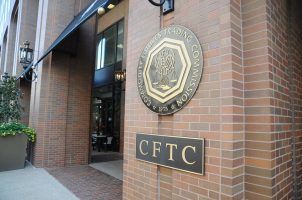Kalshi Can Offer Event Contracts on US Election, Rules Federal Judge
Posted on: September 9, 2024, 07:48h.
Last updated on: September 9, 2024, 10:25h.
A federal judge in Washinton, DC on Friday cleared the way for financial exchange and prediction platform Kalshi to offer markets on the outcome of the US election via event contracts.

The Commodity Futures Trading Commission (CFTC), which regulates the exchange, had previously ordered Kalshi not to offer this product on the grounds that betting on elections is illegal in the US.
Kalshi sued the CFTC last year, arguing that it had overreached its authority when it blocked the contracts.
What’s an Event Contcrat?
An event contract is a type of derivative that allows users to speculate on the outcome of a specific event, whether that be monetary policy, the Oscars, or which party will win control of Congress. They’re usually formatted for putting money on “yes” or “no” outcomes before expiring.
Unlike traditional futures contracts, event contracts are priced according to the perceived likelihood of events occurring. That makes them controversial for their similarity to gambling. In the UK, for example, they are overseen by the UK Gambling Commission (UKGC) rather than financial regulators.
In addition to providing economic hedging benefits, political event contracts harness the power of free markets to produce high-quality predictive data. In countries where fixed-odds betting on political events is permitted, sportsbooks have regularly proved to be more accurate predictors of election results than polls.
The CFTC Strikes Back
Judge Jia Cobb didn’t give her reasons for siding with Kalshi, which she said she would lay out in a forthcoming opinion.
“Election markets are now legal in the United States for the first time in 100 years. Americans will finally be able to trade the election on a US-regulated market,” the startup’s CEO and co-founder, Tarek Mansour, said in a statement.
Hours later on Friday, the CFTC filed an emergency motion asking the judge to stay the decision for two weeks. The regulator said in the motion that it was in “the unenviable position of finding out that it has lost but without any explanation or reasoning.”
At a time when distrust in elections is at an all-time high, even a short listing of Plaintiff’s contracts, and/or similar election contracts on other DCMs, could harm public perception of election integrity and undermine confidence in elections,” CFTC lawyers wrote.
In a filing Sunday, Kalshi called the motion “meritless” and said granting it would cause “irreparable harm” to the company. Kalshi had “staked its future” on the litigation and on being able to participate in the forthcoming election markets, the company added.
“The Commission lost, fair and square, on the law,” Kalshi said in its Sunday filing. “It should not be allowed to snatch a procedural victory from the jaws of defeat by running out the clock.”
Related News Articles
PredictIt to Seek Injunction Against Ending Political Exchange in Feb. 2023
PredictIt Gets Reprieve, for Now, as February 15 Liquidation Deadline Halted
US Regulators Block Political Betting Proposal
Most Popular
PUCK, NO! Health Dept. Closes Las Vegas Wolfgang Puck Restaurant
Oakland A’s Prez Resigns, Raising Questions About Las Vegas Move
Vegas Casino Resorts Install Detectors to Smoke Out Vapers — Report
Most Commented
-
UPDATE: Whiskey Pete’s Casino Near Las Vegas Closes
— December 20, 2024 — 33 Comments -
Zillow: Town Outside Las Vegas Named the Most Popular Retirement City in 2024
— December 26, 2024 — 32 Comments -
Oakland A’s Prez Resigns, Raising Questions About Las Vegas Move
— December 27, 2024 — 9 Comments -
UPDATE: Former Resorts World & MGM Grand Prez Loses Gaming License
— December 19, 2024 — 8 Comments
















No comments yet